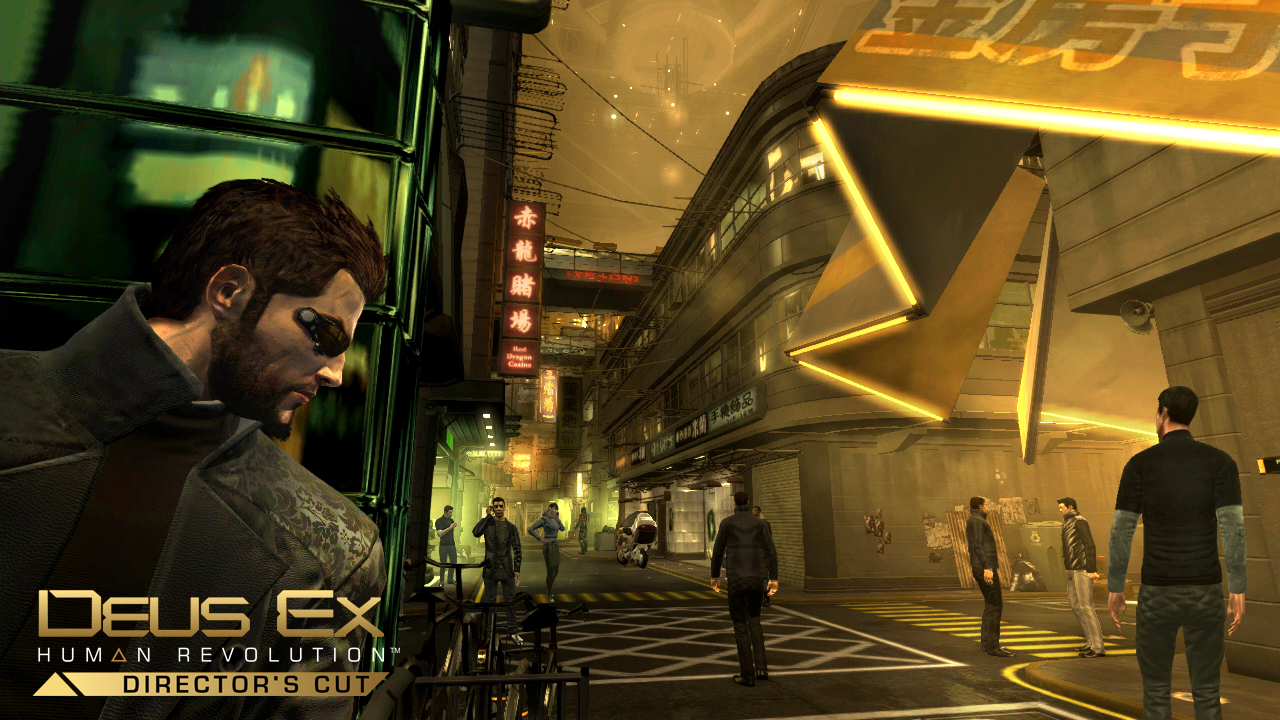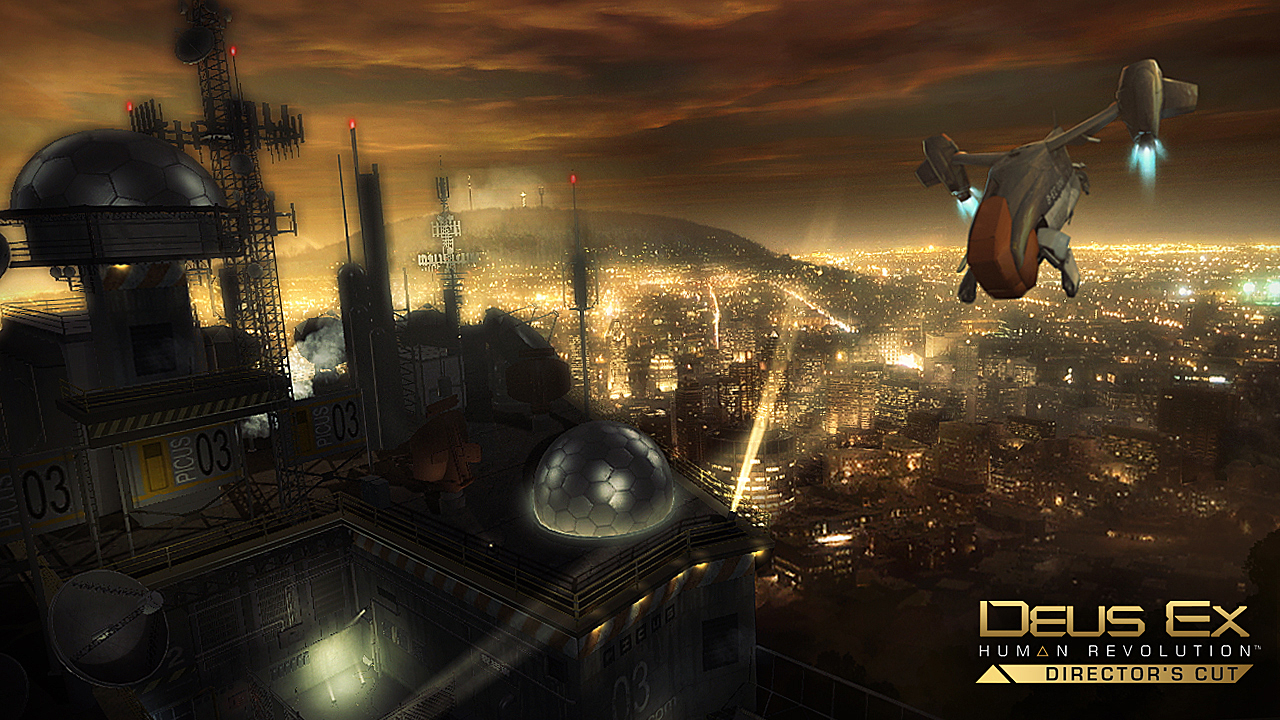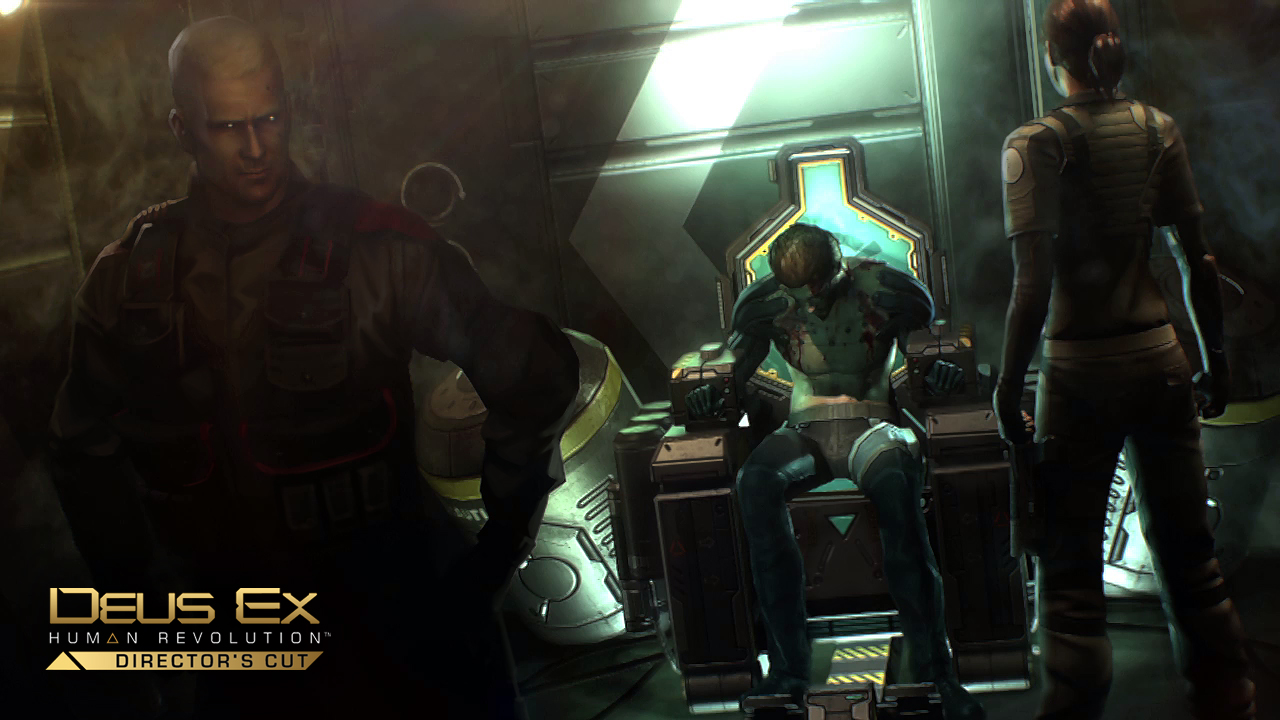Deus Ex: Human Revolution (Director's Cut) - Review
Deus Ex as a series has since its inception in 2000 been synonymous with its commitment to player choice. Though the freedom it proposed to offer only extended as far as the game had been designed to allow (as does every game by their very nature), its strength was in concealing these limits well enough that your actions still felt independent. Human Revolution (and its Director’s Cut, which is what I will be reviewing and has been my first exposure to the game) intends to carry this torch forward, but rather than simply revive a franchise that has been dormant since the less positively received Invisible War in 2003, Human Revolution presents itself as a fresh start and a chance to redefine Deus Ex. In the process they’ve created a game that often feels ready to fall apart at a moment's notice, but is uniquely fascinating in that despite all its faults Human Revolution still seems to accomplish virtually everything it intended to.
What Human Revolution does best is keep the player in the dark without telegraphing this with obvious plot holes or unavailable mechanics. As Adam Jensen, previous head of security for Serif industries brought back to life through an experimental human augmentation surgery, I felt from the very beginning sufficiently capable for what the game threw at me. I was informed, technologically and physically superior to my enemies, and clear as to what my role was in all of this.

Human Revolution manages to keep this up an astoundingly long time, keeping its narrative tightly concealed even when it seems to be spilling open before you. This is largely accomplished through Human Revolution ultimately being less about individuals, but organizations and ideas. The comically evil villains teased at the beginning of the game are quickly eclipsed by motives and plans far bigger and more radical than their mundane attempts at intimidation which are little more than a front. Human Revolution is a game with big aspirations that excels at asking complex, difficult questions with the intelligence they require and a lack of simple solutions to choose between.
Transhumanist and metaphysical debate as to the ethical implications of humanity accelerating its own evolution are at the center of all of this, but rather than creating two sides characterized by extreme extrapolations of their ideologies for the player to choose between, Human Revolution intentionally muddies the water so as to require the player to come to their own conclusions as to whose (if anyone’s) side they should choose. The ideas it presents are complicated and logical in a way that is rarely seen in games, which more often fall back to black and white views of morality even as they assume to be more intelligent than a collection of tired, easy clichés.
Human Revolution never falls into this trap, going so far as to omit many of the gaming’s standard illustrations of choice and consequence to avoid simplifying itself for the sake of convenience. There are no morality bars which swell and dip with each conversation, no side quests locked out by binary choices or indicators informing you that your decisions have consequences. In this way Human Revolution feels refreshingly unhindered by the freedom that ironically tends to lock games down, allowing you to approach situations and conversations on whatever terms you feel appropriate, and then requiring you to deal with whatever happens later.
Upgrades in the form of unlocked augments serve as a much more reserved skill tree than we have grown used to seeing, but rather than narrowing your options for growth Human Revolution has gone to great lengths to trim its progression system down to its most meaningful components. Skill points came very slowly throughout the game, but each time I received one it presented an important choice that had the potential to extensively alter my style of play. I found myself paying a great deal of attention with how I spent each of my points, giving me a greater attachment to my play style and a more noticeable sense of improvement than I initially expected.

Whether I was smooth talking a guard to let me by or opting to slip in through an air duct, my actions created natural ripples which often extended further than I even realized. This feeling that I was a part of a world which reacted and changed depending on how I interacted with it, made Human Revolution exceedingly engaging and surprising. It’s rare for me to feel like I’m inhabiting an actual developed world when I play a game, but no matter how long I spent with Human Revolution I rarely saw the edges where that illusion breaks and I’m reminded that these are just images on a screen.
Unfortunately though that means when those edges do appear, they’re that much more jarring and disappointing, even more so in this case as when Human Revolution fails it does so in ways you can’t unsee and which don’t go away. Bugs and glitches abound, from spotty hit detection to excessive clipping to instances of guards seeing/not seeing me when they should/shouldn’t to weird animation hiccups and general issues in presentation. More pressing than technical breakdowns though is how disconnected enemies felt from their environment. Repetitive patrol patterns and alert cooldown timers I could deal with, but looking at enemies standing above a stairwell unsure how to proceed, or having them crouch idly outside a vent I had just crawled into rather than proceed in after me made it hard to view my adversaries as people rather than models running on scripts with some very narrow parameters.
Human Revolution makes up a lot of the slack created by its incapable patrols with level designs I loved exploiting and experimenting within, often discovering routes where I least expected it and feeling incredibly clever each time I found a new solution to a problem I’d been stuck at. This is stripped away completely though in each of the games widely criticized boss fights, which amount to giant warts on a better game than they deserve to be a part of. They’re boring, simple, allow effectively no room to experiment, and are typically so easy as to make me wish they had simply been replaced with a cutscene that would at least have taken less time.

The worst offender in regards to wasting your time however isn’t a boss fight (or not entirely, that is), but the mini campaign originally released as DLC, The Missing Link. In the Director’s Cut this is integrated directly into the story as you play, but it is so abundantly clear it wasn’t originally a part of the game that you’d never mistake it for anything but an underwhelming add-on unceremoniously popping up at a pivotal point in Human Revolution proper. It’s a very tedious, meandering mission which essentially resets your progress in the game up to that point and takes several hours before it’s even clear why you should care about what’s going on, at which point it’s very nearly over.
This also presented one of the most problematic elements in the game to me, that being its use of human trafficking and rape as window dressing for a narrative than is more about the dangers of uninhibited scientific experimentation than human rights. I found this cavalier approach to such distressing topics to be appalling and exploitative, especially in a game that seemed to take so much care in giving the heavy subject matter discussed in its narrative the respect they deserve. It doesn’t help that Human Revolution up to that point had already been terrible to essentially every woman who had the misfortune of getting caught up in its plot. When they’re not stuck in the roll of a prostitute or racist caricature, women are allowed to exist only so long as to help our male lead, at which point they are killed off often in such a way as to again provide motivation for the protagonist. I’m not joking when I say by the end of the game almost every significant female character in the game has been killed or written off, assuming they had even been given that much of a purpose.
Final Word
There are so many rough edges to Deus Ex: Human Revolution that it would be easy to pick it apart bit by bit as half-baked and overambitious. Doing so though would miss what makes it so impressive and interesting. It’s a game with so many layers, of interconnected systems and the dynamics that crop up between them, that even when one element breaks down it is held up by everything working together with it to create an experience that feels so uncharacteristically AAA. Human Revolution takes a lot of big risks with its design, not all of which work and some will likely fail to resonate with certain players, but its willingness to commit to itself feels inspired in a way I haven’t felt from a big budget game in quite some time.

